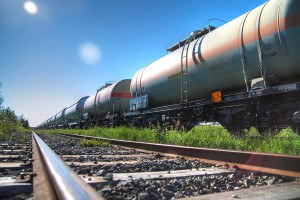Oil Train Derails and Explodes Forcing Evacuations in West Virginia
Source: http://www.claimsjournal.com, February 17, 2015
By: Nancy Moran
A CSX Corp. train carrying Bakken oil from North Dakota derailed and ignited in West Virginia, forcing some residents to flee their homes in frigid weather while cutting power and threatening drinking water.
Governor Earl Ray Tomblin declared a state of emergency for Kanawha and Fayette counties as the train’s operator worked with emergency responders at the scene. One person was treated for possible smoke inhalation and fire broke out on up to 15 of an estimated 27 derailed cars, said Lawrence Messina, a spokesman for the West Virginia Department of Military Affairs and Public Safety.
There are about 85 people in local shelters and more may be in hotels following the derailment that occurred early Monday afternoon, according to Messina. Fire damaged power lines while the town of Montgomery shut an intake valve to its water system.
“We still do believe that there is oil in the water from at least one leaking tanker,” said Messina. “Unfortunately the severity of the fire is such that it’s been difficult to assess the situation in sufficient detail.”
The Obama administration is revising safety standards after a series of train derailments involving oil, including a July 2013 accident in Quebec that killed 47 people as well as several non-fatal explosions in states including North Dakota.
CSX “is working to contain oil found in a creek that runs parallel to CSX tracks, and water utilities on the nearby Kanawha River are taking precautions,” the company said in statement late Monday. “Fires around some of the cars will be allowed to burn out.”
Car Models
The train consisted of two locomotives and 109 CPC 1232 rail cars made with either 7/16-inch carbon steel shells and 1/8-inch carbon steel jackets, or cars with 1/2-inch carbon steel shells, Gary Sease, a CSX spokesman, said in an e-mail.
The derailment occurred at about 1:18 p.m. local time Monday, according to Theresa White, director of the Fayette County Office of Emergency Services. The train was traveling to Yorktown, Virginia, from North Dakota and was carrying Bakken oil, according to the West Virginia Department of Military Affairs and Public Safety.
“The U.S. Coast Guard is on the scene with booms to try to control the crude oil,” White said by phone.
CSX teams also are working “to deploy environmental protective measures and monitoring on land, air and in the nearby Kanawha River,” according to the company.
The West Virginia derailment followed a similar accident late Saturday in Canada, when a Canadian National Railway Co. train carrying oil derailed near Gogama, Ontario.
Canadian Accident
On its website, Canada’s biggest railroad said in a statement dated Feb. 16 that repairs were being made on the Ruel subdivision of its main line and that shipments between Montreal and Winnipeg, Manitoba, “may continue to experience delays for an additional 24 hours.”
The new U.S. standards for trains carrying crude would first require companies to upgrade tank cars known as DOT-111s, which safety investigators have said are prone to puncture in rail accidents, a person familiar with the proposal said this month.
The draft rule also would require that new cars be built with steel shells that are 9/16th of an inch thick, people familiar with the plan said. The walls of the current cars, both DOT-111s and the newer CPC-1232 models, are 7/16th of an inch thick.
(With assistance from Theo Mullen in Atlanta, Rebecca Penty in Calgary and Aaron Clark in Tokyo.)






